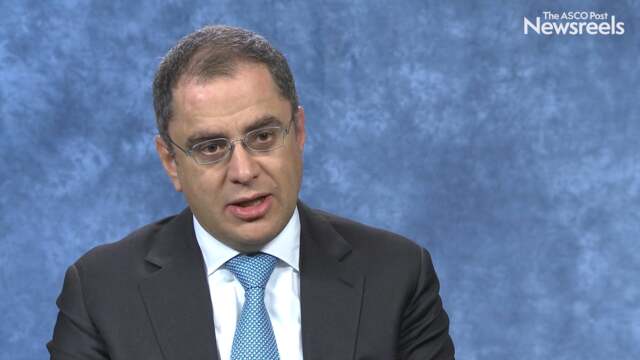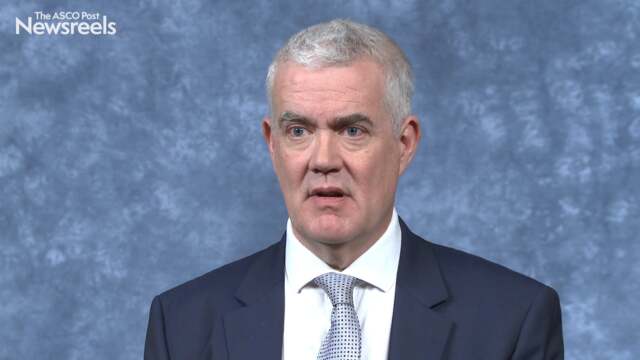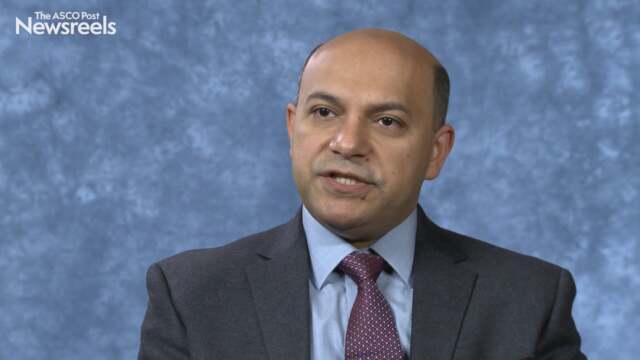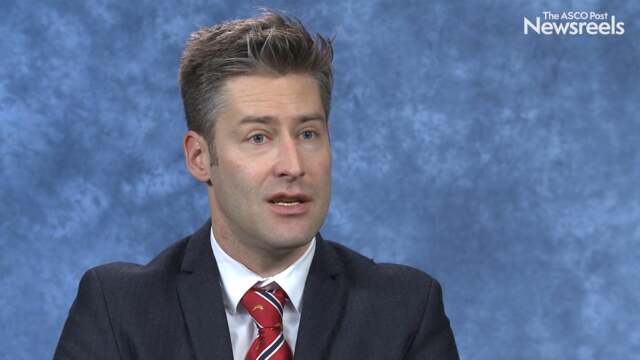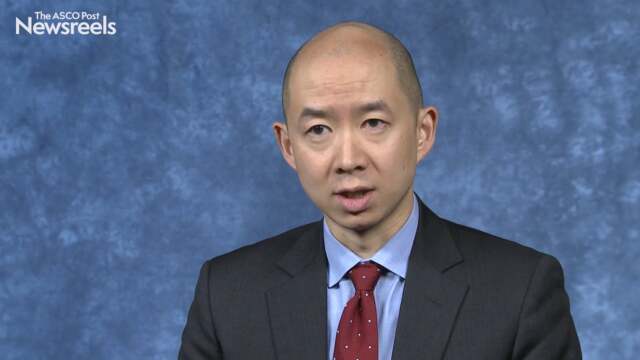Ramesh K. Ramanathan, MD, on Metastatic Pancreatic Cancer: Results From a SWOG Study
2018 Gastrointestinal Cancers Symposium
Ramesh K. Ramanathan, MD, of the Mayo Clinic, discusses early-phase study findings on mFOLFIRINOX (mFFOX) plus pegylated recombinant human hyaluronidase vs mFFOX alone in patients with a good performance status (Abstract 208).
Ghassan K. Abou-Alfa, MD, of Memorial Sloan Kettering Cancer Center, discusses phase III study findings on cabozantinib vs placebo in patients with advanced hepatocellular carcinoma who have received prior treatment with sorafenib (Abstract 207).
Mark Saunders, MD, PhD, of Christie Hospital, discusses study findings on tumor sidedness and the influence of chemotherapy duration on disease-free survival (Abstract 558).
Basem Azab, MD, of the Sylvester Comprehensive Cancer Center, University of Miami, discusses the impact on overall survival when more than 2 months elapse between finishing neoadjuvant therapy and undergoing esophagectomy (Abstract 2).
Pieter van der Sluis, MD, PhD, of the University Medical Center Utrecht, discusses study findings that compared robot-assisted minimally invasive thoracolaparoscopic esophagectomy vs open transthoracic esophagectomy for resectable esophageal cancer (Abstract 6).
Abraham J. Wu, MD, of Memorial Sloan Kettering Cancer Center, discusses his findings that suggest efforts to reduce lung dose, such as shrinking the treatment volumes or using proton therapy, may improve outcomes in esophageal cancer (Abstract 3).
